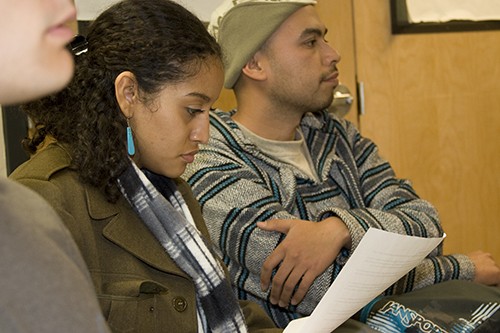A collection of students and ASUA representatives finalized a resolution against Arizona’s ethnic studies law, formerly H.B. 2281, and planned to present it to the ASUA Senate on Wednesday.
The bill, passed last year, prohibits courses advocating ethnic solidarity. It states that students attending public schools should be taught to treat and value each other as individuals and not to resent other races or classes of people.
The Arizona Senate will decide if the Tucson Unified School District, which had its Mexican American/Raza Studies Program eliminated under the law, is in compliance on April 18, the deadline to discontinue the program.
Changes were made to the drafted resolution to focus more on the potential impacts to higher education and TUSD, according to Francisco Lara Garcia, a senior majoring in political science and Latin American studies who drafted the resolution.
The final resolution states that ethnic studies enrich the educational experience by fostering dialogue, mutual respect and cultural awareness, while fomenting critical thinking and other beneficial skills necessary for success in a university setting or in the workplace.
Michael Weingartner, a sophomore majoring in molecular and cellular biology and creative writing who helped write the resolution, said that having the resolution come from an educational perspective allows it to be more logical for practical and ideological reasons. He said this could show potential negative effects created by the proposed law, like less student competitiveness in the Arizona workforce.
Katherine Weingartner, the executive vice president of the Associated Students of the University of Arizona, said she does not think the resolution will pass in the ASUA Senate on Wednesday because they will want to get feedback from the overall student population first to see if the resolution is representative. She did, however, say that the students advocating the resolution should present it to the senate this Wednesday if they want to start generating attention around the issue.
“”The resolution is about sending a message, and we should want to move it forward as quickly as possible,”” Garcia said.
Katherine Weingartner added that the resolution has a higher chance of passing in the senate if those advocating the resolution can prove the resolution has student support.
She explained they could present statistics about how students educated by ethnic studies classes exceed on standardized tests, or the history behind ethnic studies.
The students advocating the resolution plan to compile a presentation explaining their resolution. They also plan to circulate a petition throughout the week in order to gain student support for the resolution.









